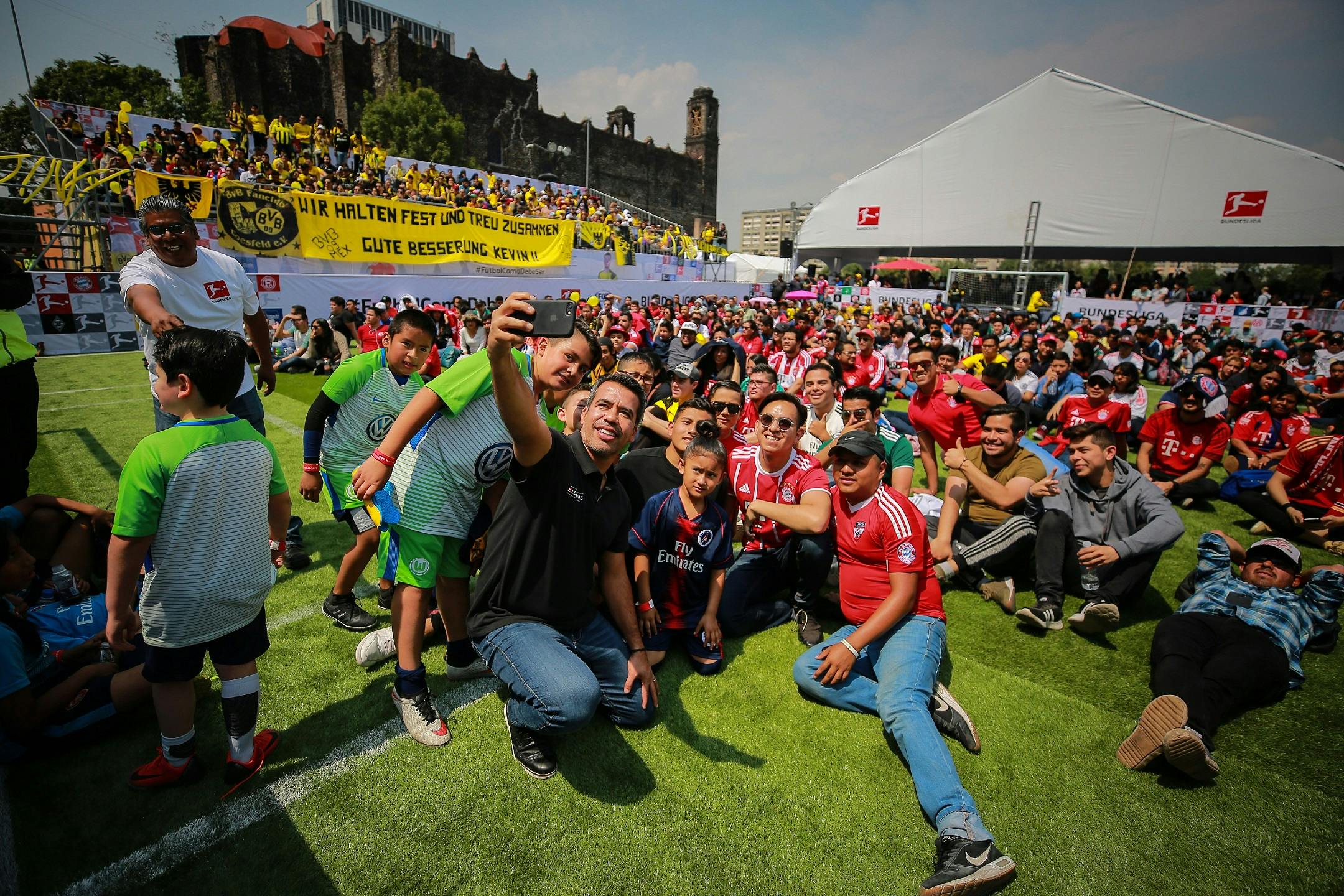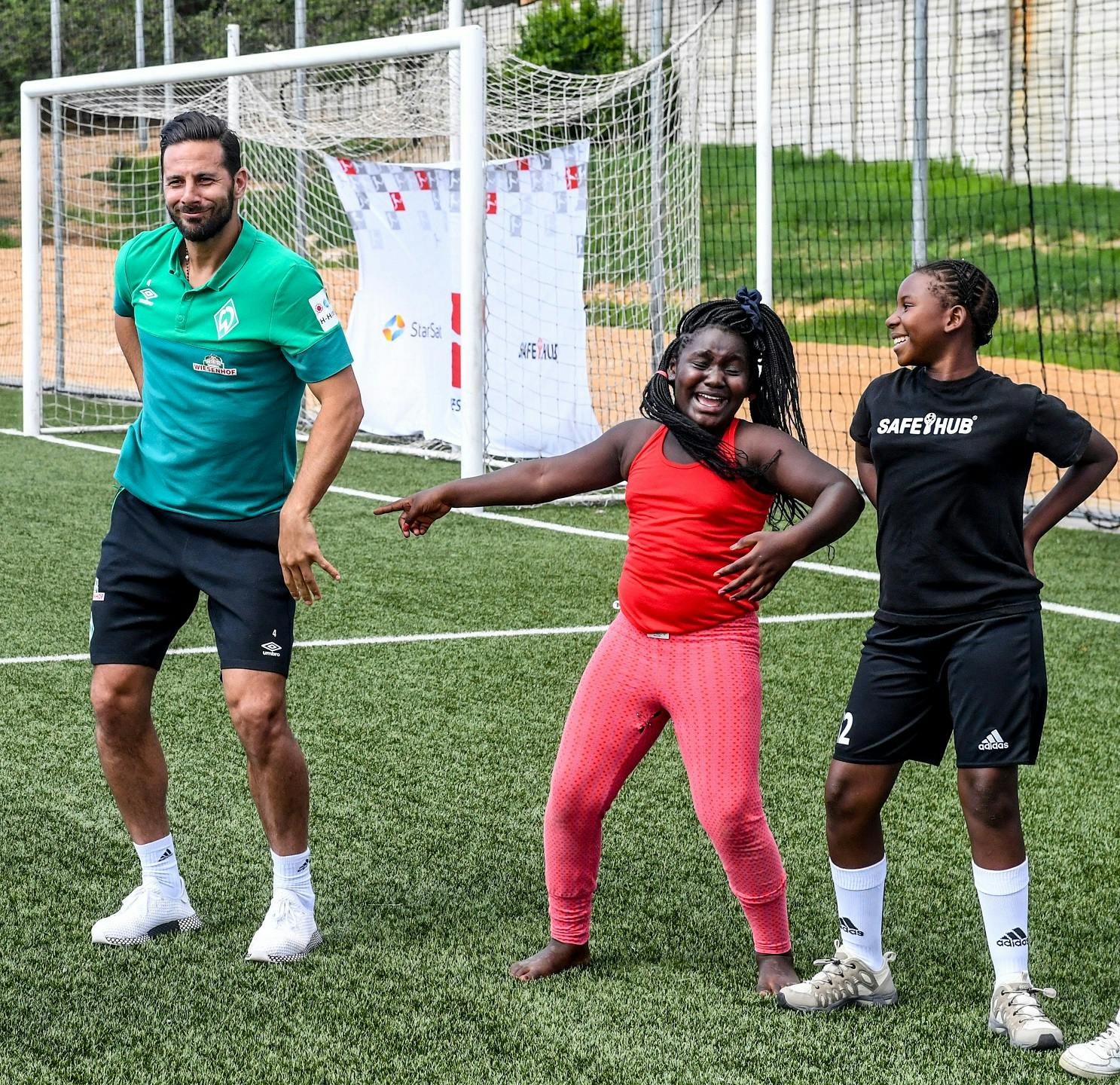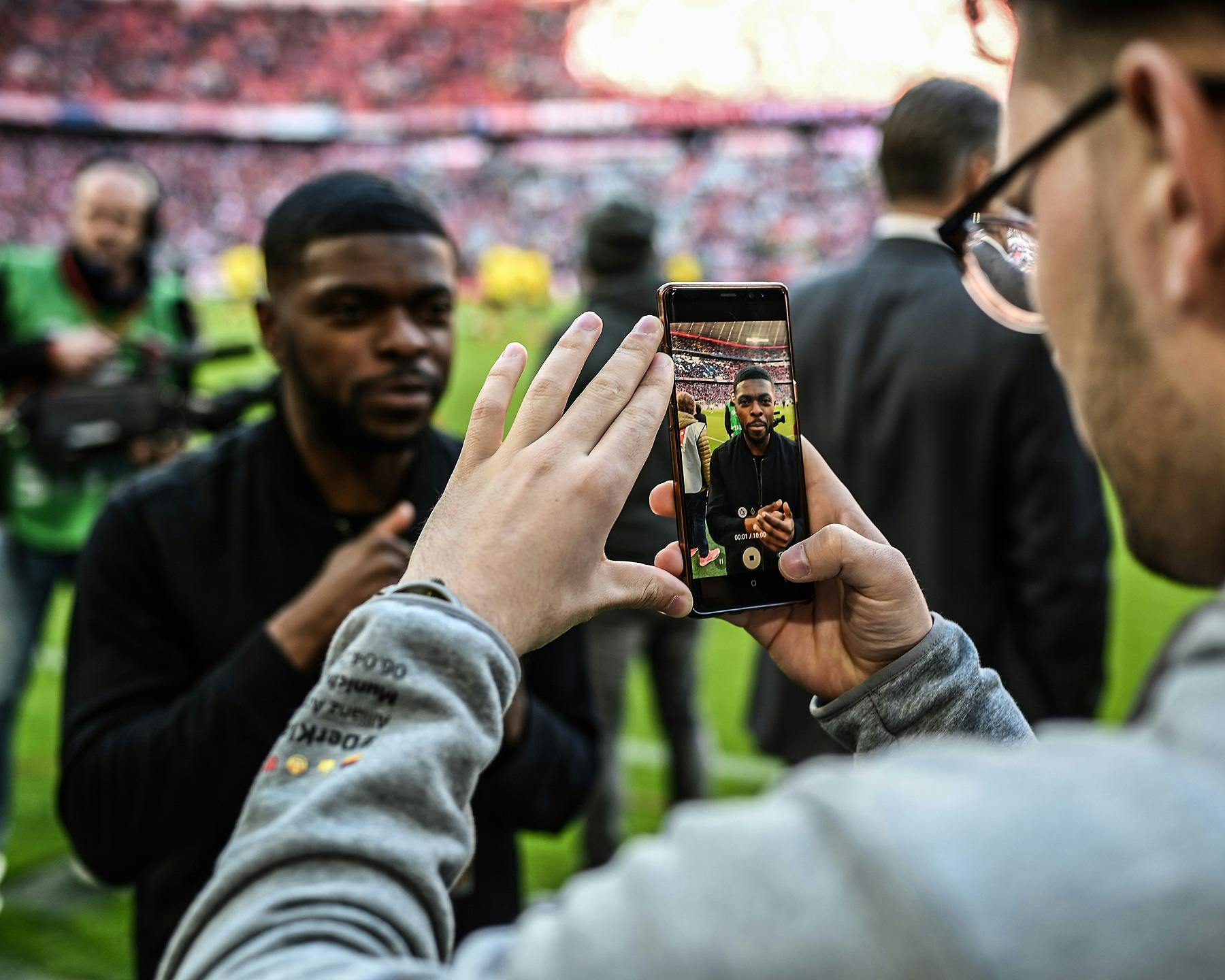With 99% brand recognition in Germany, the Bundesliga is arguably the country’s best-known product. The challenge for Bundesliga International, a subsidiary of the Deutsche Fußball Liga (DFL), is driving such recognition in foreign markets as the league looks to grow its revenues from global media rights sales over the next 12 months (excluding Europe and China).
Over the past two years, Bundesliga International, working with the entire DFL Group, has been driving the league’s reach across the world, developing bespoke localised marketing strategies that are already delivering results for the league.
The key for Peer Naubert, the organisation’s head of global marketing, is engagement. He says: “Our overarching goals, from which we derive all measures, are increasing reach, engagement and tune-ins for our league, to ultimately increase the value of our brand.
“We pay most attention to engagement – and we have the highest engagement rate globally among major football leagues. With more than 20 million social media fans, we recognise we don’t have the biggest number of followers, but we do have the fans that are the most engaged. That’s interesting for us because it means they’re investing in our league.”

Market Intelligence
For Bundesliga International, it was important to ensure the groundwork for delivering their global marketing strategy was comprehensive. To understand their target markets,whilst local observations are key, one important component of planning is business intelligence, an area Bundesliga International has made considerable investment in.
Delivered through their in-house unit at their headquarters in Frankfurt, adding input from local offices in Singapore, New York, Beijing and partners in Mumbai, plus insights from a network of partners worldwide – Bundesliga International sets the standard in terms of local market knowledge and understanding of fan behaviour.
Naubert says: “We needed to define who are our fans and prospects, where we can find them, how they behave and what they like to consume. This ongoing gathering of business intelligence data proves invaluable when it comes to developing engagement strategies, and whilst it is only one component of our strategy, it is key to ensuring relevant content is delivered to fans on the platforms they are using.”

Global Positioning
The Bundesliga recognises it’s not only up against other football leagues as it competes in an attention economy with other content, media and entertainment brands. That’s one of the reasons the Bundesliga considers engagement as one of the key measurements of success.
Whilst the league enjoys widespread recognition in its home market, foreign markets have the biggest potential for growth. Naubert continues: “We’re proud to have the highest attendances of any football league in the world, however the Bundesliga is fully aware that millions more fans across the world want to experience the league’s renowned culture and atmosphere despite not being able to visit stadiums.
To do this, the Bundesliga has undertaken a multi-faceted approach designed to reach fans 24-7, delivering engaging content that tells the story of our league, our clubs and our players across all marketing channels and fan touch points.”
He adds: “It’s engagement that sets us apart, driven by our ‘Football As It’s Meant To Be’ mantra – that passion and desire to be involved in something real, something authentic. And whilst local market entry strategies can vary in each region depending on the interpretation of the brand and local market conditions, everything we do is centred around ‘Football As It’s Meant To Be’, as this is crucial in brand building and development.”
That simple yet precise articulation of the values of Germany’s elite football league serves as a statement of authenticity designed to set it apart from its rivals in the battle for hearts, minds, eyeballs and, ultimately, spending power of sports fans around the world. The Bundesliga’s claim of being the ‘most entertaining football league in the world’ is backed by evidence including the highest goals-per-game rate compared to any other major European rival (3.26 per game this season), the highest stadium attendances in world football (43,000 on average per game) and truly unique clubs.
Like all major entertainment products however, it’s the stars who make it shine. With a diverse mix of footballing icons and wonderkids from across the world, the Bundesliga has a rich pool of content to work with. Naubert explains: “Around 50 per cent of players come from abroad, in total from more than 60 nations. We have global stars such as Germany’s Manuel Neuer, Marco Reus and Thomas Müller, Poland’s Robert Lewandowski, England’s Jadon Sancho, Brazil’s Philippe Coutinho and Japan’s Makoto Hasebe, and these are clearly a pull for their home markets.”
Local Delivery
Whilst defining their position has been fundamental to their growth strategy, the Bundesliga has been working hard to bring this to life globally by delivering ‘Football As It’s Meant To Be’ locally as part of their ‘Think global, Act local’ philosophy.
Giving fans the opportunity to touch, feel, hear and experience the Bundesliga through a diverse mix of marketing activities and local market strategies has been key to building the league’s brand. The Bundesliga works very closely with its global network of broadcast partners in this regard, to develop local strategies aimed activating ‘Football As It’s Meant To Be’ on-screen, via social and digital media and through on-ground activities.
Whilst it’s not been an easy ride, the organisation has learned a lot, lessons which have helped them continue to improve year on year. Naubert says: “Our openness to evidence, via our ‘build-measure-learn’ approach, means that whilst many of our activities have been successful, there’s always room to improve. We regularly review the impact and shortfalls of our strategy, with the end goal of making emotional connections with fans to drive long-term engagement with the Bundesliga.”
Strategy in Action

As one example of how Bundesliga International delivers this multi-faceted marketing approach with its partners, Naubert explains: “The Bundesliga Experience in Mexico City last April was a perfect case of leveraging our full value chain and marketing tookit, with the support of our local broadcaster Fox Sports, to deliver a multi-faceted event and engagement activation around ‘Der Klassiker’ between FC Bayern München and Borussia Dortmund.”
Over 5,000 fans descended on the central location in Mexico’s capital city across four days of activities thanks to a comprehensive marketing drive in the build-up to the event. Bundesliga legend, Pável Pardo, who spent three seasons at VfB Stuttgart and won 146 caps for Mexico, played a major role in the campaign. Reminiscing about his time in Germany in clips released via the Bundesliga’s distribution channels, fans were invited to come and meet him in person at the big screen viewing event.
The live watch party was an opportunity to share ‘Football As It’s Meant To Be’ directly with fans, whilst the league’s Virtual Reality experience gave fans a truly immersive experience of Germany’s largest and loudest stadium – Dortmund’s Signal Iduna Park. Around the main event was a number of other activities, including a 5-a-side tournament, whilst clubs supported by providing coaching sessions, mascots and merchandise. Local ‘influencers’ visited the event each day, whilst other Mexican influencers were posting directly from the game in Germany, adding a huge boost to online presence.
“Wherever we are in the world, with all our local marketing activities regardless of how big or small, we try to connect all the dots to drive as much engagement as possible. We do this by bringing our marketing mix to life through physical connections and digital platforms, with vital support from our clubs and media partners,” Naubert says. The organisation’s strong relationship with its 36 clubs from the Bundesliga and Bundesliga 2 means they regularly collaborate to maximise global growth, delivering and supporting over 500 onground activities around the world in partnership, each season. This includes direct support for clubs for overseas ventures, such as pre, post or mid-season tours.
Naubert says: “We support them as much as we can in everything they do. Whether it’s through financial support for travel or by providing them with our in-house expertise to ensure they fully maximise their time with foreign fans, media, partners and grassroots projects for example.
“Last winter when Werder Bremen went to South Africa they also visited our social project – the Amandla Safehub. I think the players didn’t know too much about it before they went, but it was a life-changing experience for them, which we were able to share across social media channels.” The league and clubs also work together to deliver a wide-ranging public relations strategy, directly targeting the support of media publications across the world. This includes arranging over 10 media visits that will welcome more than 150 journalists from over 30 countries to the Bundesliga this year. The league takes media guests behind the scenes, providing expert insights from the Bundesliga and clubs, giving them direct access to players, as well as taking in a few matches to give them a complete 360 degrees ‘Football As It’s Meant To Be’ experience.
The Virtual Bundesliga (VBL) has also played a crucial role in the Bundesliga’s brand building strategy, particularly with younger audiences. “With our partner EA Sports, we’ve built a mass following from across the world through our various competitions, including an international series,” says Naubert.
“More than 120,000 gamers have participated each season since it began in 2012, with this particular audience the future generation of Bundesliga fans. In many cases, games like FIFA will be their first or primary engagement with the league, so it’s an incredibly important vehicle for us to use to build our brand.”
Digital Marketing
The close relationship with clubs is also evident in digital marketing. The common targets of the clubs and league are guided by operational workshops where executives gather together to formulate strategies on specific tasks. “For example, we do a lot of global campaigns where we hand over content to broadcast partners and our clubs. We realised that an engagement campaign we pushed over the summer, in cooperation with the DFL and DFL Digital Sports, was used by all 18 of the Bundesliga clubs. We have also, for example, been pushing player specific content to active players, such as Salomon Kalou, in a bid to leverage the African market for example,” Naubert says.
In this area, Bundesliga International works very closely with sister company DFL Digital Sports who run the league’s digital channels as in-house digital and social experts. In addition, they also work with a number of local experts to create and distribute content to specific markets.
Although many stories are produced centrally for a global audience, a large number are localised to help capture the attention of fans from particular regions. Last season, several country campaigns were developed, with local Bundesliga stars past and present, such as Ze Roberto (Brazil), Witthaya Laohakul (Thailand), Yuya Osako (Japan) and Jermaine Jones (USA), used alongside youngsters from their country in social media videos which reached over 16 million people.

Speaking about this, Naubert says: “This has all been made possible by owning our full value chain, which allows us to produce quality content that’s unique or specific consumers. Whilst we don’t always get it right, our unique setup allows us to develop and adjust content, based on key performance indicators and local expertise, to better meet the needs of fans in our target markets.”
Bundesliga International has also partnered with content partners and social media influencers to ensure even greater reach around the world. For example, 433, the Netherlands-based social media powerhouse, was invited to the DFL-Supercup and created content that amassed more than 40 million views in total.
The league also works with the likes of Soccerladuma (South Africa), Bongda (Vietnam), ONET (Poland), Siam Sports (Thailand) plus many more local content providers. In addition, Bundesliga International established an influencer programme that attracted 30 million impressions during the second half of the 2018-19 season, with 12 Bundesliga influencers invited to ‘Der Klassiker’ in what proved to be a real success.
“They created great content that resulted in very high engagement,” Naubert says. “Initially we didn’t know if the influencer programme was right for us, but we did a test run and it worked – we set some key targets and hit them. What influencers give us is access to audiences we would otherwise find more challenging to reach through our own channels, like targeted age groups, gamers for example, and fans from select countries or cultural backgrounds.”
With such an engaging product at their disposal, and all parties collaborating so closely towards a common goal, Bundesliga International looks set to continue German football’s long tradition of international success.